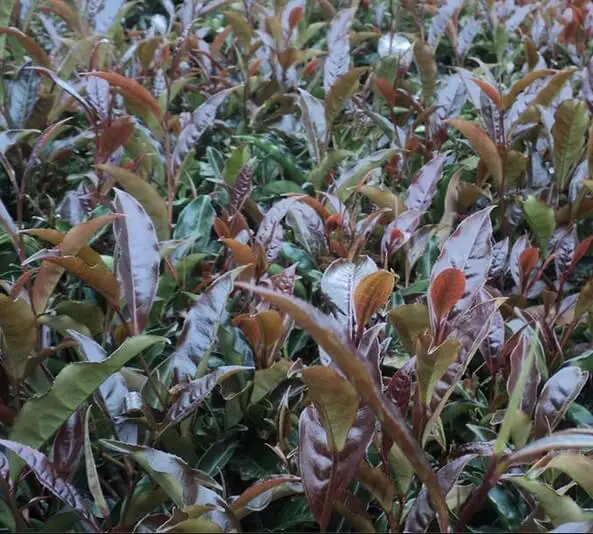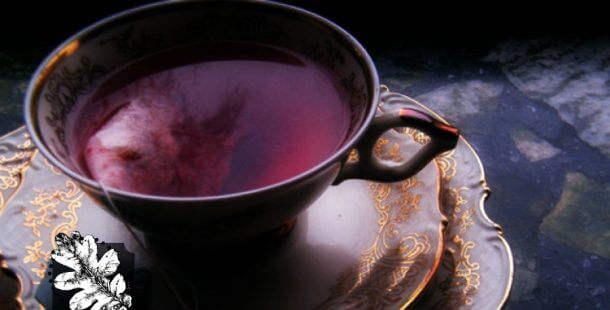Tea is a common beverage that everyone around the world is probably familiar with.
The beverage contains numerous varieties, including black tea, green tea, and oolong tea, all of which originate from the same plant.
One of the newest varietals in that rich lineup is called purple tea.
Researchers are intrigued by its “purple” mutation, and this version of tea has been heralded for its flavor, nutritional composition, and associated health benefits.
Kenya’s rich volcanic soils have rendered the country the world’s third-leading producer of tea.
The World Bank estimates that Kenya’s tea industry sustains 3 million livelihoods, with export turnovers of $1.2 billion (equivalent to 138 billion shillings).
Kenya has been a leader in tea production since the 1900s, but in 2011, the national government (via the Kenya Tea Development Agency) developed a unique and more cultivated version of tea (called Purple Tea) to prop up foreign income.
Globally, purple tea is relatively unknown compared to its green and black tea cousins but has hit the ground running nonetheless.
Unlike other tea varieties, it has less caffeine but packs a ton of health and wellness benefits that make it a healthier alternative to the everyday beverages that most are accustomed to.
So, what is so unique about purple tea?
And how does its nutritional profile compare to common teas?
Here is everything you need to know about purple tea from Kenya.
What is Purple Tea?

Purple tea is a tea varietal obtained from the Camellia Sinensis plant.
The beverage is antioxidant-rich and packs plenty of nutrients that, studies indicate, possess anti-inflammatory properties, and anti-aging potential, and can boost cognitive function.
This tea is particularly rich in antioxidants that can stimulate the body’s immune system and reduce oxidative stress from harmful radicals.
Purple tea has its origins in Kenya and was first developed in 2011.
All tea varieties of the Camellia Sinensis plant have green leaves, but Purple tea has super antioxidants (called anthocyanins) that give the plant its characteristic purple color.
It is organically grown on small-scale farms or Kenya’s rolling hills, but it is estimated to be a $200 million export enterprise in the next few years.
Nutritional Profile of Purple Tea
The “purple” mutation of Purple tea leaves is due to the rich content in natural anthocyanins.
Anthocyanins are super antioxidants present in other nutritious foods – including cherries, blueberries, and purple fruits – are scientifically proven to possess numerous health benefits.
Besides these beneficial antioxidants, what else is purple tea made of?
This beverage is increasingly becoming popular and for good reason. Research shows that purple tea leaves are rich in natural GHG polyphenols – a chemical known to burn fat and aid weight loss efforts.
These antioxidants are known to promote healthy blood pressure, and cardiovascular health, and can prevent inflammation.
Generally speaking, purple tea is processed similarly to black and green tea, except for slight nutritional differences.
It is not only more delicious than all traditional teas but is also superior in antioxidants.
Unsweetened versions of purple tea lack calories and its caffeine content of 8 oz per cup is estimated to be three times less compared to green teas.
The caffeine content is thought to be lower because purple tea is brewed at slightly lower temperatures.
That makes it a perfect choice if you are looking for a lowly caffeinated beverage.
What Does Purple Tea Taste Like?
Purple tea has a distinct, unmistakable flavor that is different from traditional teas.
The beverage, whether brewed hot or over ice, is described as having a sweet, floral, woodsy taste, with slight grassy, raspberry undertones.
The unique flavor makes purple tea stand out and offers a refreshing break from conventional teas.
Thanks to its light, floral undertones, purple tea is ideal for making blends with other teas, juices, or smoothies.
This way, you can get to enjoy the synergistic health effects while sipping on your favorite drinks.
What Are The Health Benefits Of Purple Tea?
Purple tea is a rare varietal of tea that is processed from purple leaves sourced from Kenya.
This purple hue is similar to blueberries, blackberries, red cabbage, or raspberries, and, thus, purple tea packs plenty of antioxidants, polyphenols, and anthocyanins.
Despite being lower in caffeine than all green teas, purple tea has a rich nutritional profile that studies point to a wide range of health benefits.
Preliminary research on the health benefits of purple tea is quite promising.
And this begs the question: would you ditch your juice or cup of coffee and switch to a cup of purple tea?
You will be surprised how a serving of purple tea every morning can rejuvenate your cognitive function.
Experts endorse that purple tea possesses anti-inflammatory, antioxidant, anti-cancer, and anti-viral properties.
It is worth noting that this beverage is only a decade old and more research may be needed to exhaust all its health benefits.
However, anecdotal evidence reveals that purple tea offers health benefits that go beyond traditional teas such as green and black tea.
If you are looking to incorporate purple tea into your health and wellness regimen, here is what research indicates:
1. Supports Weight Loss
Unlike other tea varieties, purple tea is an excellent source of polyphenols called GHG and unsweetened forms have no calories.
Research indicates that this type of polyphenol exhibits anti-obesity and weight-loss effects due to its fat-burning properties.
Consistent consumption of purple tea has been shown to lower cholesterol, cut down on abdominal fat, and reduce body weight.
2. Enhances Cognitive Function
Taking a cup of purple tea in the morning can stimulate brain function, thereby increasing your mental focus, mood, and concentration.
Besides, purple tea has low caffeine content, so wouldn’t have to worry about the jittery rush of adrenaline that is associated with other heavily caffeinated beverages.
Low caffeine is also proven to be stomach friendly.
3. Possesses Antiviral and Anti-Inflammatory Properties
Due to purple tea’s antiviral and anti-inflammatory potential, it can stimulate your immunity and protect against common inflammatory conditions such as cold and flu, as well as respiratory infections such as asthma.
4. Promotes Cardiovascular Health
Purple tea contains anthocyanin, a highly medicinal compound that prevents arterial thinning and is great for cardiovascular health.
The antioxidant properties of anthocyanin can also revitalize blood metabolism and lower cholesterol levels.
Potential Side Effects
Beyond its well-documented health benefits, excessive intake of purple tea has been known to possess certain side effects, including:
- Nausea
- Stomach upset
- Diarrhea
What Makes Purple Tea Unique Compared To Other Varieties Of Tea?
Technically, all teas are derived from the same Camellia Sinensis plant.
And while all the other varieties have green leaves, the leaves of purple tea are purple.
Kenya is a global leader in the production of black tea.
The country developed the purple tea variant just recently, but its sale is already gaining traction in both domestic and internal markets.
So, what makes this beverage unique? And what are the glaring differences between purple tea and say, Black tea?
| Green Tea/Black Tea | Purple Tea | |
| Price (per kilo) | $0.50 but varies from time to time | $1 and is currently priced twice as much as traditional tea |
| Leaf color | Green | Purple |
| Caffeine content (per cup) | 24 oz | 8 oz |
| Popularity | More popular among tea lovers and has been consumed for centuries | Recently developed in 2011 and is only starting to grow in popularity |
| Nutritional profile | Black tea packs plenty of caffeine that is likely to overstimulate and give you jitters. Has a sweet flavor and is super hydrating. | Has less caffeine but packs plenty of antioxidant activity that is great for health and wellness. Has sweet, earthy, floral undertones. |
Purple Tea for Weight Loss
Does purple tea support weight loss?
One of the biggest conundrums surrounding weight gain and weight loss is calorie intake.
Experts assert that if you take more than you burn, then you are likely to gain weight.
Studies, however, show that purple tea (unsweetened) contains no calories – which is welcome news if you are looking to shed weight.
Moreover, purple tea is an excellent source of polyphenol GHG, and one research indicated that its fat-burning properties are anti-obesity and can promote weight loss.
The rich concentration of super-antioxidant anthocyanin has also been shown to lower cholesterol levels.
This evidence pits purple tea as a great beverage for weight loss efforts.
How to Prepare Purple Tea
At the farm level, only fresh, mature leaves are plucked by tea pickers.
They are then withered to reduce moisture and enhance the sweet taste.
At the factory, the leaves are steamed and rolled to dry, before they are milled into a smooth consistency ready for packaging and use.
If you are brewing purple tea at your kitchen table, water that is slightly below boiling point is recommended.
Here is what to do:
- Preheat one cup of water (for a serving of one) to a temperature of 85 to 95 degrees celsius.
- Add a heaping teaspoonful.
- Steep for 2 to 3 minutes.
- Serve without sugar or milk if you are looking to appreciate its rightful flavor.
Can Purple Tea Be Enjoyed Hot And Cold?
Yes, purple tea is one of the most nutritious and versatile go-to beverages anyone can find.
It can be brewed using boiling water or prepared over ice, and its distinctive flavor and associated health benefits make it a refreshing alternative to traditional beverages.
Purple tea can also be added to smoothies and infused into a wellness routine.
Where Is Purple Tea Grown In Kenya?
Purple tea is organically-grown on medium and small-scale plantations in Kenya’s sprawling Nandi hills, around the floor of the Great Rift Valley.
The region has rich volcanic soils and favorable climatic conditions for tea planting.
Generally, tea cultivation is Kenya’s second highest foreign income earner.
Where to Buy Authentic Purple Tea from Kenya?
Purple tea is increasingly becoming popular, and enthusiasts in both domestic and foreign markets are beginning to realize how refreshing the flavor and its incredible health benefits can be.
The demand for purple tea is high, and understandably so.
If you are looking for an authentic packet, order from Amazon. There are quite a number of reputable retailers selling purple tea from Kenya.
You can also buy from other reputable and regulated brands in Kenya such as Ketepa and Eldo Tea.
Conclusion
Purple leaf tea is a rare varietal of tea that was only developed in 2011 by the Kenyan government.
The beverage has super-antioxidants called anthocyanins that provide cardiovascular, anti-aging, anti-cancer, and anti-obesity health benefits.
Compared to traditional teas such as black or green tea, purple tea contains less caffeine, but is rich in antioxidants that have been proven to revitalize metabolism, boost immunity, and reduce cholesterol.

